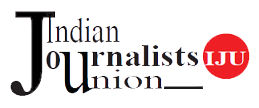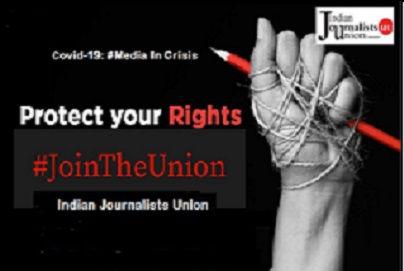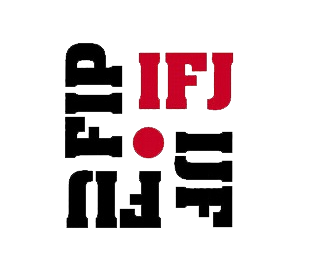New Delhi, 29 August 2020: The Indian Journalists Union welcomes the Delhi High Court stay on Sudarshan News TV channel from broadcasting a show on Friday, which its Editor-in-Chief Suresh Chavhanke claimed was an expose on the ‘infiltration of Muslims’ in the civil services and had in a promo used the expression “Jamia Ke Jihadi.”
Hate speech, said the Union has no place in any civilised society and definitely not in the fourth estate.
The High Court had been petitioned by current and former students of Jamia, submitting that the show sought to “defame, attack and incite hatred against Jamia Millia Islamia, its alumni and the Muslim community at large”. Plus, it added that Chavhanke had “openly incited his target non-Muslim audience by fear-mongering that ‘jihadis’ or terrorists from Jamia Millia Islamia would soon hold positions of authority and power like that of Collector and Secretary.” The content it said “constitutes hate speech and criminal defamation in terms of Sections 153A(1), 153B(1), 295A and 499 of IPC.”
Justice Navin Chawla restrained the broadcast of “Bureaucracy Jihad’ in Chavhanke ‘Bindas Bol’ programme and issued notice to the Union government, the UPSC, Sudarshan TV, and Chavhanke, and scheduled the matter for September 7. However, Chavhanke said his channel ‘strongly stands by the content shown in the promo’ and it was “first time in the history of television news that a show has been stopped before its telecast”.
In a statement, IJU President and former Member, Press Council of India Geetartha Pathak and Secretary General and IFJ Vice President Sabina Inderjit said that while the union stands firm in defending press freedom and free speech, it cannot support any kind of hate speech and any form of defamation. Having endorsed the IFJ’s Global Charter of Ethics, the Union urged the media to adhere to its clause 9 which states: “Journalists shall ensure that the dissemination of information or opinion does not contribute to hatred or prejudice and shall do their utmost to avoid facilitating the spread of discrimination on grounds such as geographical, social or ethnic origin, race, gender, sexual orientation, language, religion, disability, political and other opinions.





